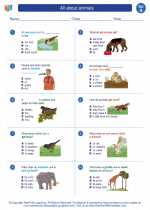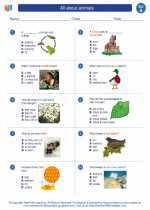What is Heredity?
Heredity is the process by which genetic information is passed from parent to offspring. This genetic information is stored in the form of DNA (deoxyribonucleic acid) and is organized into structures called chromosomes.
How Does Heredity Work?
Genetic information is passed from parents to offspring through the transfer of genes. Genes are specific segments of DNA that determine particular traits, such as eye color, hair texture, and blood type. Offspring inherit a combination of genes from both parents, which is why they may share characteristics with each parent.
Key Concepts in Heredity
- Genotype: The genetic makeup of an organism, which includes all the genes inherited from its parents.
- Phenotype: The observable physical or biochemical characteristics of an organism, which are determined by its genotype and environmental factors.
- Alleles: Different forms of a gene that can occupy a specific location on a chromosome.
- Dominant and Recessive Traits: Some traits are dominant, meaning that only one copy of the gene is needed to express the trait, while others are recessive, requiring two copies of the gene for the trait to be expressed.
Mendel's Laws of Heredity
In the 19th century, Gregor Mendel, an Austrian monk, conducted groundbreaking experiments with pea plants and formulated the basic principles of heredity. His laws include:
- Law of Segregation: Each individual has two alleles for each trait, and these alleles separate during the formation of gametes (sex cells).
- Law of Independent Assortment: Genes for different traits are inherited independently of one another.
Patterns of Inheritance
Several patterns of inheritance have been identified, including:
- Autosomal Dominant: A single copy of the dominant allele is sufficient to express the trait.
- Autosomal Recessive: Two copies of the recessive allele are required to express the trait.
- X-linked Inheritance: Genes located on the X chromosome exhibit unique patterns of inheritance.
Human Heredity
In humans, heredity plays a crucial role in determining susceptibility to various diseases, physical characteristics, and even behavioral traits. Understanding human heredity has significant implications for medical research, genetic counseling, and personalized medicine.
.◂Science Worksheets and Study Guides First Grade. All about animals

 Worksheet/Answer key
Worksheet/Answer key
 Worksheet/Answer key
Worksheet/Answer key
 Worksheet/Answer key
Worksheet/Answer key
 Worksheet/Answer key
Worksheet/Answer key
 Vocabulary/Answer key
Vocabulary/Answer key
